by Petr Svab via The Epoch Times (emphasis ours),
The United States needs to ramp up enforcement against every step of the manufacturing and trafficking of fentanyl and other deadly synthetic drugs if it hopes to stem the crisis, several experts told The Epoch Times. With every passing day, however, the path to success gets narrower as the criminal organizations involved get more sophisticated.
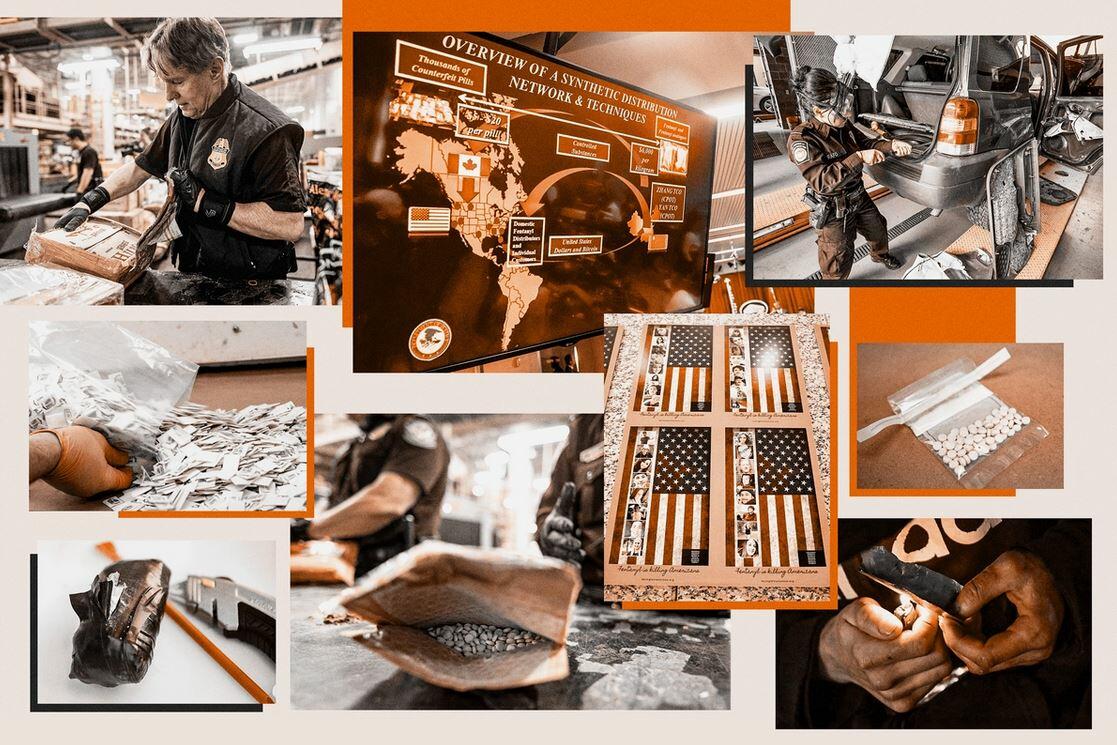
More than 100,000 Americans died of an overdose last year; of which more than 70,000 overdosed on synthetic opioids such as fentanyl, according to estimates by the Centers for Disease Control and Prevention (CDC).
The United States government has poured billions into addiction treatment, but the drugs are too broadly available for the treatment to stick, some experts said, arguing the supply needs to be drastically curbed.
Illicit fentanyl usually comes across the southern border from Mexico where it’s manufactured from chemicals made in China and pressed into pills that often look like prescription drugs such as Xanax, Adderall, or oxycodone.
Steps by the Chinese Communist Party (CCP) to regulate export of illicit chemicals have been dismissed by the experts as cosmetic. Instead, they say, the regime is using drugs as a strategic weapon against the United States.
“This is a chemical war that we’re facing, and no one’s treating it as a war,” said Derek Maltz, former head of special operations at the Drug Enforcement Administration (DEA).
“People are treating it as a drug issue. It’s not a drug issue. It’s the number one threat to our national security,” he told The Epoch Times.
The House Select Committee on the CCP issued a report earlier this year detailing China’s involvement at every step of fentanyl trafficking. Chinese companies produce the precursor chemicals from which fentanyl is prepared. Chinese companies ship the chemicals to Mexico. Chinese-made pill presses allow the production of counterfeit pills. Chinese organized crime groups then help the cartels launder and move the illicit profits from the United States to Mexico.
Both the Trump and the Biden administrations have managed to press China to impose additional regulations on fentanyl as well as its analogs and precursors, but the measures “lack teeth” because they fail to impose “substantial costs” on illicit producers, according to Andrew Harding, a research assistant in the conservative Heritage Foundation’s Asian Studies Center.
“As long as the producers can stay quiet and evade law enforcement, they will continue to produce,” he told The Epoch Times.
The CCP has claimed to shut down 14 websites, suspend more than 330 business accounts, and close down more than 1,000 online shops that were engaged in the sale and distribution of illicit drugs and precursor chemicals, a senior Biden administration official told reporters in July.
But he acknowledged that “there continues to be a significant supply of precursor chemicals out of [China].”
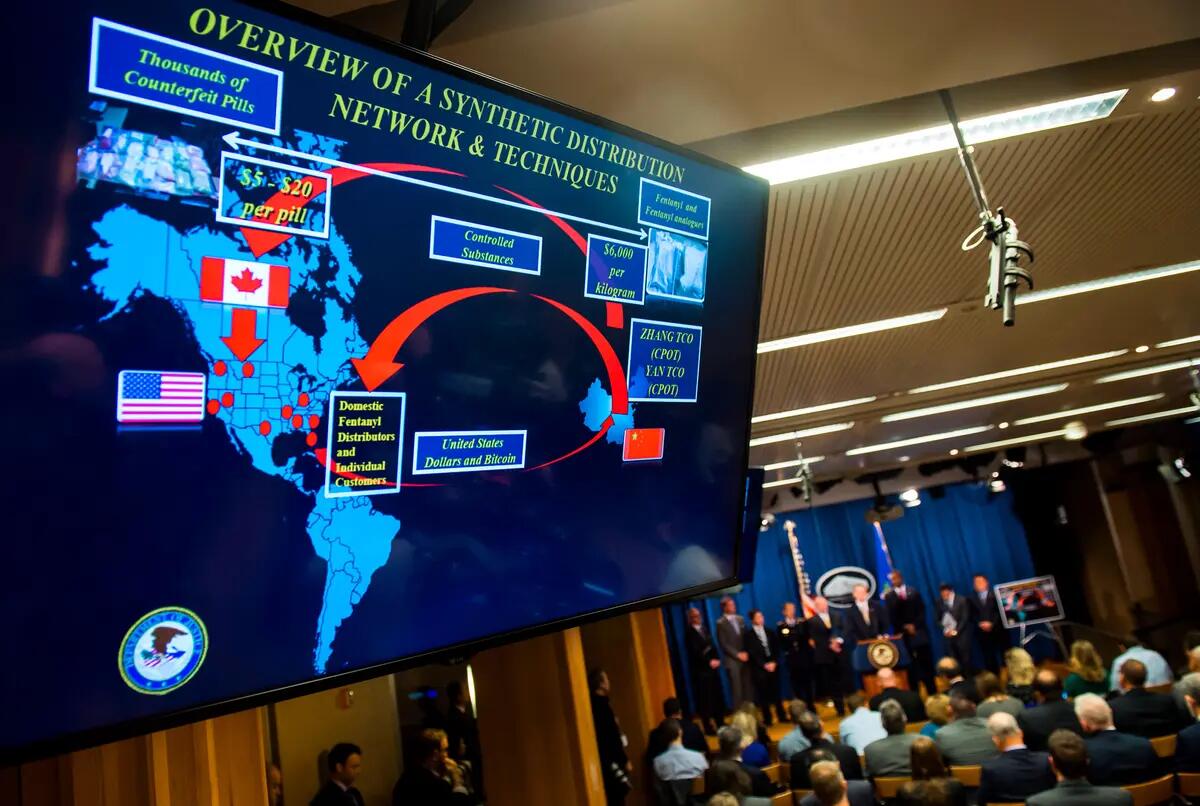
“There’s obviously a whole lot more to do. And that’s why these ongoing conversations and engagements are so important, even if we’re taking small steps one at a time,” he said.
The experts, however, suggested that the time for small steps and engagement has passed as China’s weak actions hint at intentionality.
“This is all part of their strategic plan, in my opinion, to harm America,” Maltz said.
“It’s part of the unrestricted warfare game, and that’s what’s happening. And they’re actually very successful, because America is not taking care of business, and America is not taking it seriously.”
The Select Committee on CCP found that Beijing was subsidizing illicit chemical exports, providing tax rebates specifically on sales of chemicals that are often not only illegal in China, but lack legitimate use besides making illegal drugs. Some of the rebates were even higher than those offered on any other export products.
It also found evidence that the regime was intentionally making it difficult for foreigners to find information about the rebates.
The Biden administration, however, stopped short of endorsing this conclusion.
“We do not have any information to support that finding, that [China] is actually subsidizing these exports,” said the senior administration official, adding “there’s a need for an ongoing conversation about that.”
The White House didn’t respond to a list of questions emailed by The Epoch Times.
To truly solve the crisis, the experts said, the United States needs to hit every chokepoint along the trafficking chain. And it must be done fast.
“We’re losing hundreds of thousands of Americans. What’s going to happen in a few years?” Maltz asked.
“They’re not going to be filling jobs that are important down the line. They’re not going to be going to college, they’re not going to be getting professional jobs, they’re not going to be helping our society. They’re going to be gone.”
The government is already playing catch-up with traffickers, he noted.
Cartels and other criminal organizations are increasingly trafficking synthetic drugs even more powerful than fentanyl, such as xylazine and nitazenes. Xylazine is particularly abhorrent since it causes tissue necrosis and its overdose can’t be reversed using naloxone—a drug that can overturn an overdose caused by opioids, including fentanyl, if administered quickly.
If the fentanyl crisis is likened to cancer, the United States is already in an advanced stage, according to Michael Brown, formerly a DEA agent of more than 30 years who now heads counter-narcotics technology at Rigaku Analytical Devices.
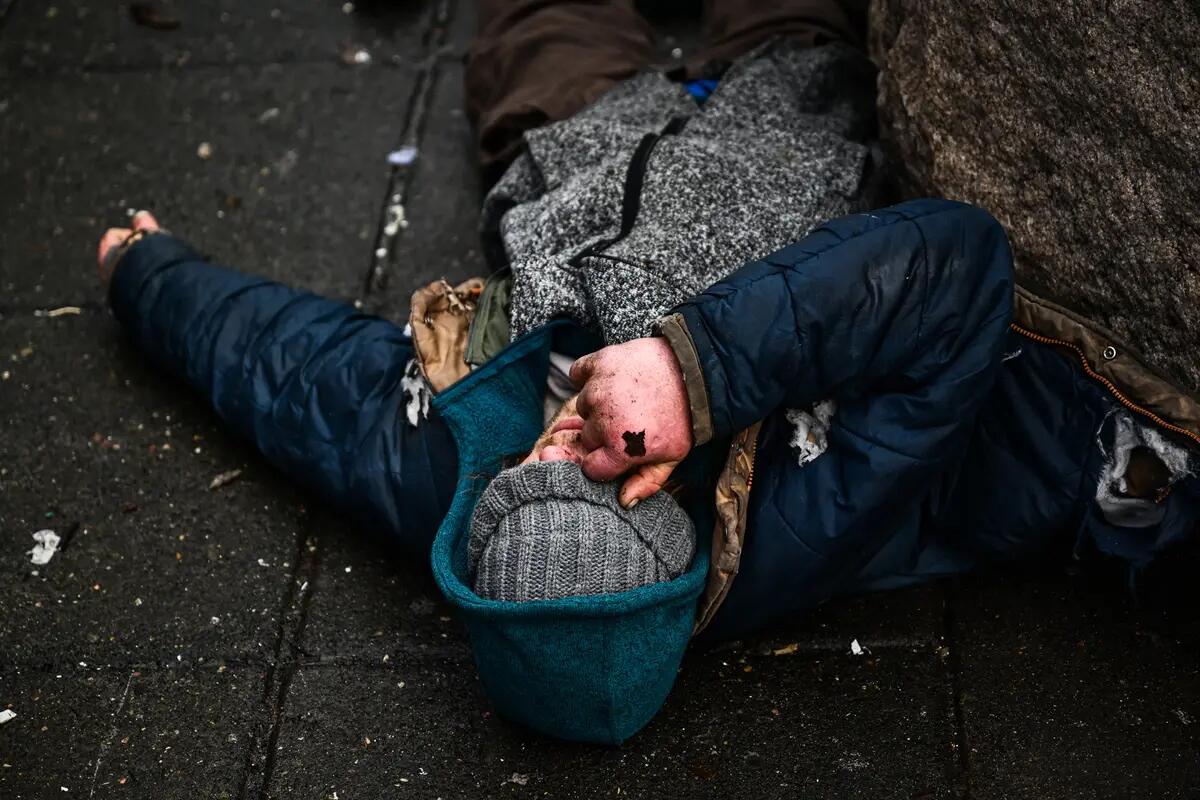
So far, it should still be possible to crack down on the supply of fentanyl precursor chemicals, perhaps with the aid of artificial intelligence, he said. But the precursor chemicals have their own precursors too. If the cartel labs become so sophisticated as to manufacture fentanyl precursors from chemicals that are too general in purpose to effectively track, it will be even more difficult to root the problem out, he said.
“If the cartels get to what I call the final evolution of narco-chemistry, which means they have multiple recipes that can be used to make stage one, stage two, and stage three pre-precursors to make the required precursors, there’s no way even using AI, I think, we can beat this issue in the next five to 10 years.”
Pressure on CCP and Mexico
“An effective U.S. strategy to combat the international fentanyl trafficking industry should begin with the recognition that the United States lacks good-faith partners in both the Chinese and Mexican governments,” according to a recent Heritage report coauthored by Harding.
The CCP has not only been unwilling to address the issue constructively, but has in fact used it as a bargaining chip to force concessions from the U.S. on technology sales, he said.
The Mexican government, in the meantime, seems to be under profound influence of the cartels, the experts said.
“All those chemicals ... are coming in and they’re coming in freely because people are being paid off, and the Mexican government allows it,” Victor Avila, former Immigration and Customs Enforcement agent with Homeland Security Investigations, told The Epoch Times.
The only way to induce cooperation would be to twist the hands of governments, some experts said. The Biden administration has imposed sanctions on more than 300 entities and individuals tied to fentanyl trafficking but it’s not clear if that has produced any tangible effect.
Sanctions would only be effective if they hit major companies, Brown said.
In 2019, China had more than 23,000 chemical companies and about 5,000 that produced pharmaceutical precursors. The Chinese chemical industry produces some $1.5 trillion annual revenue. That’s about 40 percent of the world’s chemical market, he noted.
If a few small Chinese chemical companies are sanctioned, it doesn’t make much of a splash. But if a major Chinese company is targeted, that would get the attention of the regime and create a deterrent, Brown told The Epoch Times.
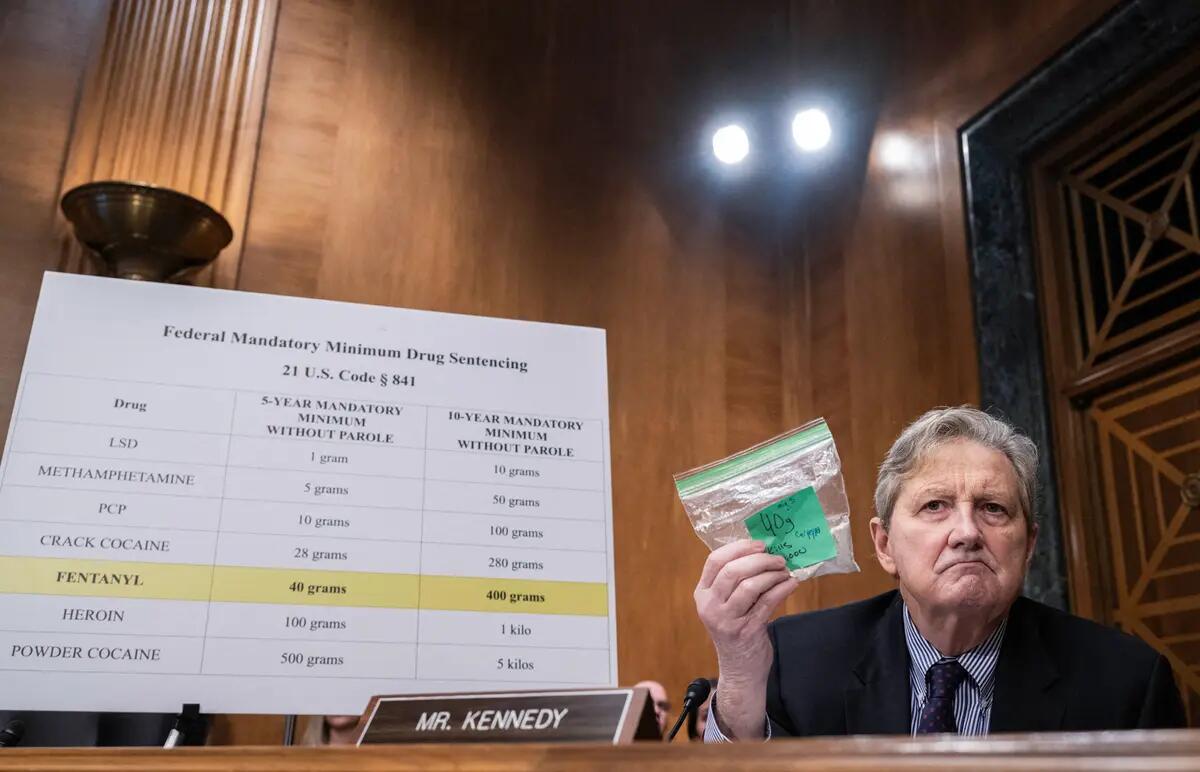
With its extensive internet monitoring, the CCP, sufficiently motivated, should be able to sniff out fentanyl precursor traffickers, the Select Committee on CCP report pointed out.
The CCP could also share useful information with the United States.
“If China was sincere on helping the U.S. with the crisis, it would have agreed to share information on chemical shipments with the U.S. and Mexico so that they can be tracked,” Brown said.
Even in absence of CCP’s cooperation, however, the United States could do much more, the experts suggested.
Intercepting Packages
The United States should use its Navy and the Coast Guard to interdict suspicious maritime shipments from China to Mexico before they reach cartel-controlled ports, the Select Committee on CCP report recommended.
But because fentanyl is so potent, precursor chemicals are often sent in smaller quantities by air, Brown said.
Packages from China to Mexico are usually shipped through Alaska, giving the United States an opportunity to check them on the way, he noted.
“Customs and Border Protection have access to those parcels. If they can identify a suspected parcel, they can go in and actually seize it.”
Sometimes, the chemicals are sent to a front company that looks like a drug maker but in fact doesn’t produce anything. A background check would reveal it as fake.
Precursor chemicals can also be shipped to a legitimate pharmaceutical company and then diverted to cartels. In that case, the company’s production wouldn’t match the amount of precursors it’s ordering.
It’s extremely common, however, for the packages to be mislabeled, Brown said. The only way, then, would be to check packages en masse using sniffing dogs or gadgets that can identify chemicals. Not all packages would need to be checked, but it would need to be a percentage large enough to serve as a deterrent.
Such checks could be much more effective by using artificial intelligence to recognize suspicious patterns, he said.
“Does it make sense for somebody in Mexico to order 500 pounds of pool cleaner from China? AI would say, ‘I don’t like this. Maybe take a look at it,’ right?”
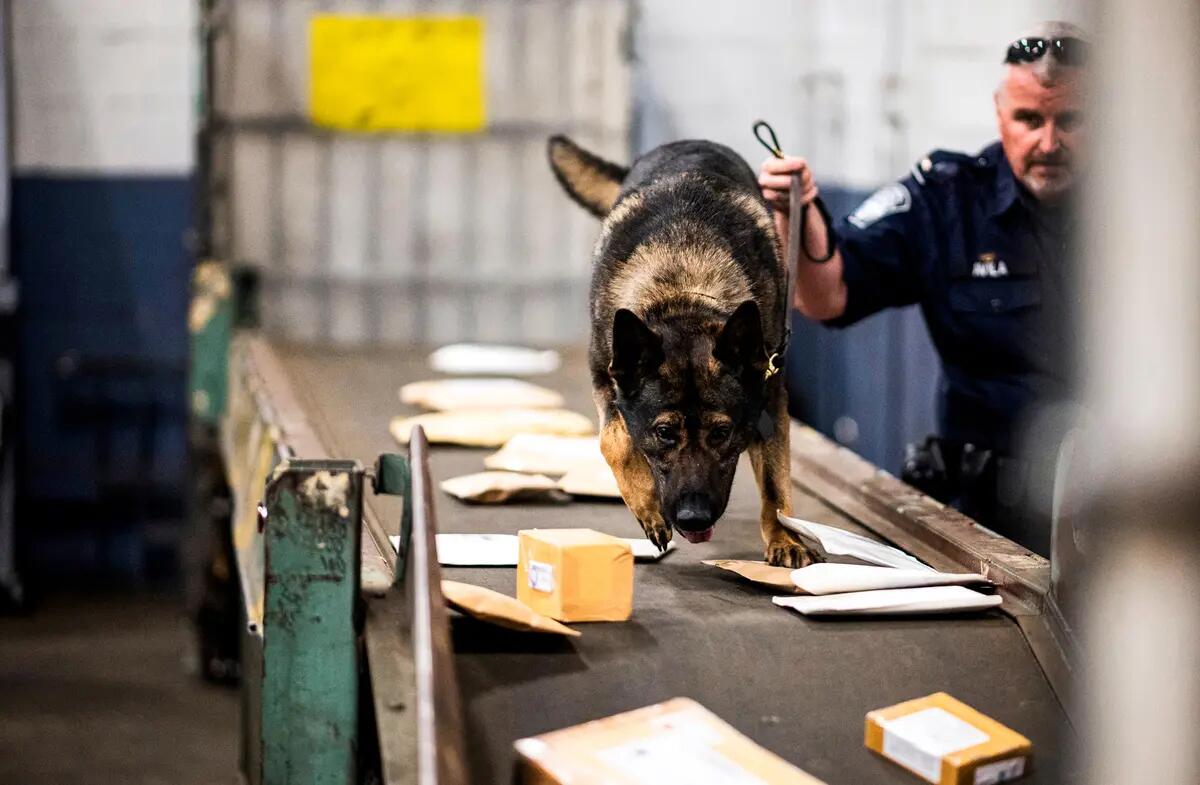
Focusing on shipping has the added benefit of minimizing the civil rights impact of false positives. Nobody needs to be arrested or stopped by police to check a package during transit. International packages are already expected to get probed by customs officers, so there’s no new privacy intrusion.
“If you’re using pattern recognition and parcel screenings, if you open it up, if five out of 50 parcels are legitimate, it doesn’t matter. You just put it back on the board and send it to where it’s going. But if you start making a 20 to 30 percent seizure rate, cartels are going to go on panic mode,” Brown said.
Targeting Cartel Labs
More than 100 “super labs,” operated by cartels in Mexico, produce fentanyl and press it into pills, Avila said.
The first step should be to designate the cartels as foreign terrorist organizations, he recommended.
“Let’s start there, because that’s what they are. You designate the cartels as foreign terrorist organizations now, you treat them just like ISIS, just like the Taliban, just like al Qaeda, exactly the same, meaning that no longer do you do even what I used to do as a special agent—those investigative techniques are stale and outdated. You need to go after these guys using Department of Defense resources.”
There’s a chance the United States could convince the Mexican government to cooperate with U.S. military operations against cartels.
“We have good informant networks in Mexico and we know where ... a lot of these production labs are. We could definitely get access to their locations. So we should be destroying those production labs, because without the chemicals, without the labs, you can’t produce the poison,” Maltz said.
There needs to be a way to intimidate the cartels, he suggested.
“We have to be way more aggressive with the cartels right now. There’s no fear. They have no fear of America because there’s no consequences.”
Securing the Border
“Having a wide-open border, and that’s what we have now, is facilitating the ability for these cartels and for these criminals to get these substances into America, because our resources are being overwhelmed,” Maltz said.
When the Border Patrol has its hands full processing hundreds of thousands of people illegally crossing the border, that’s when the drugs can pour in undetected.
https://www.zerohedge.com/political/chemical-war-killing-70000-americans-each-year
No comments:
Post a Comment
Note: Only a member of this blog may post a comment.